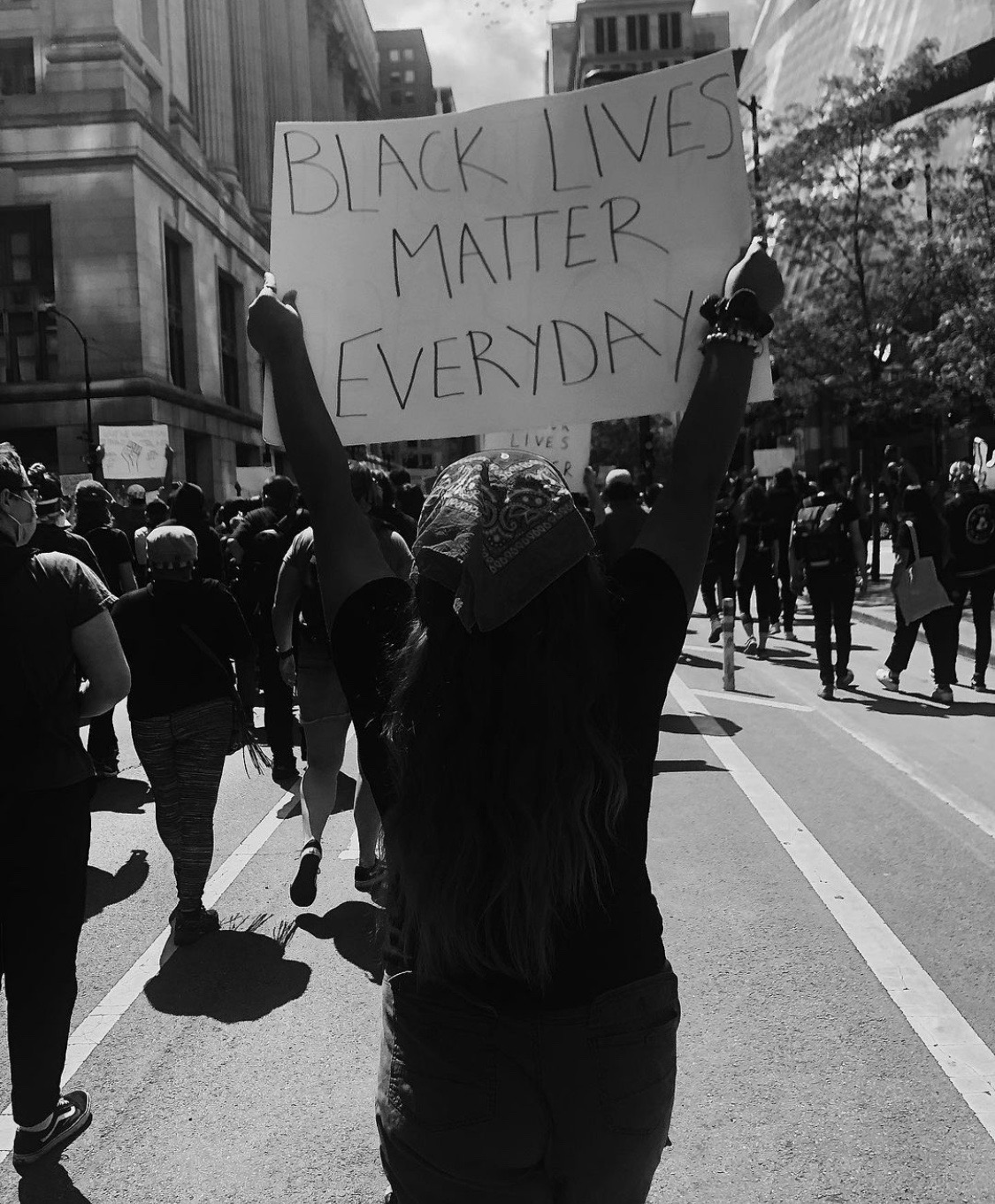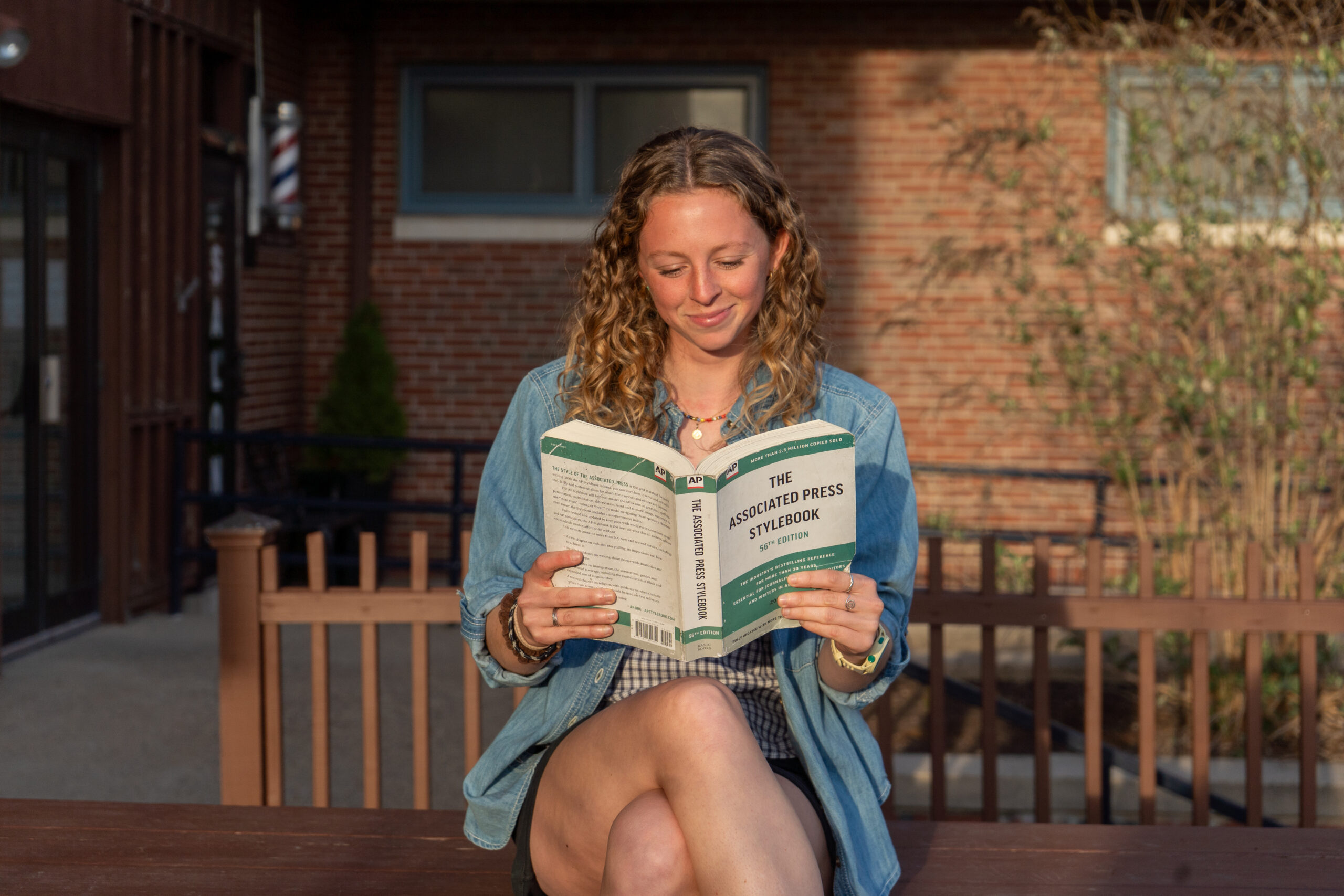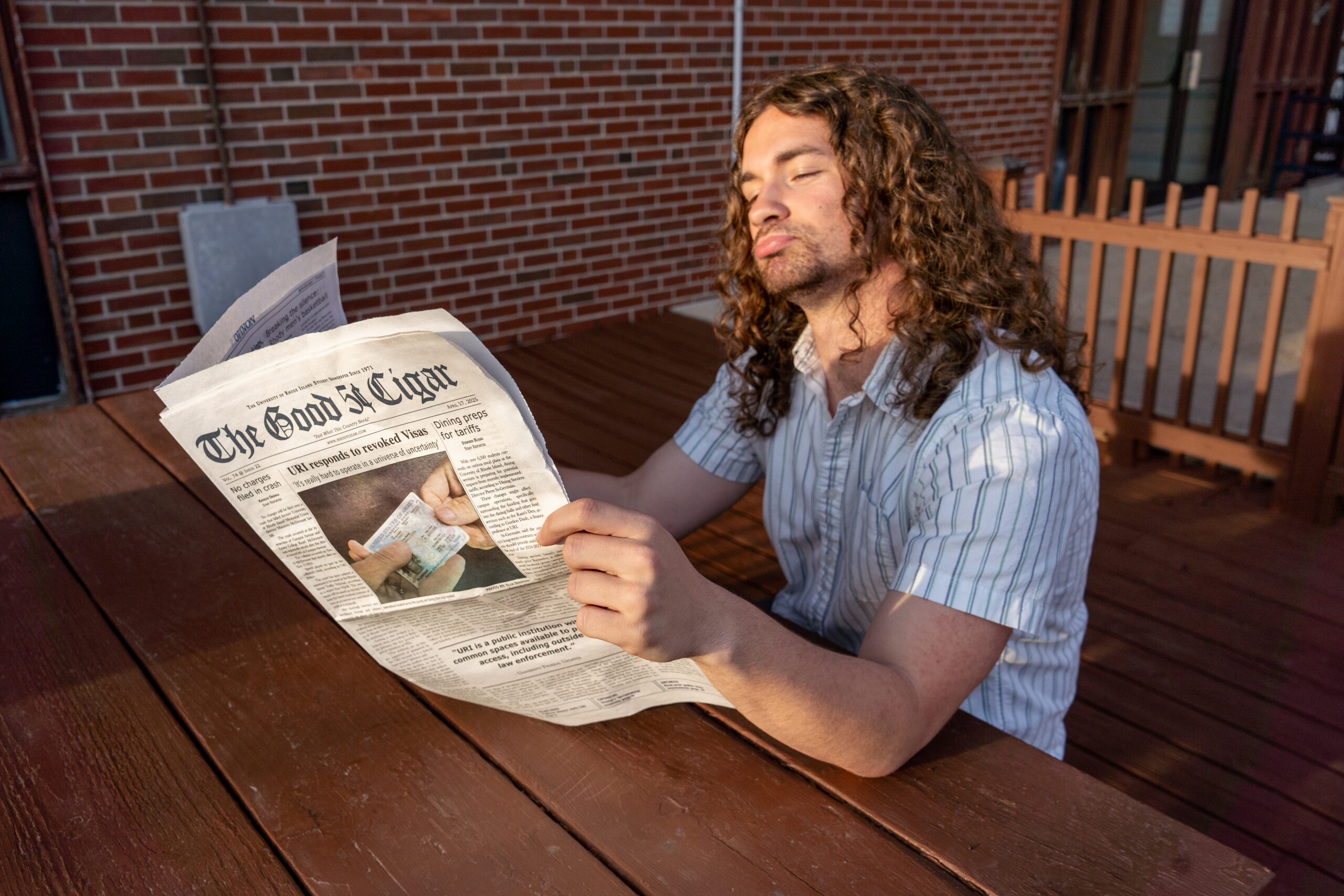Imani Fleming during a Black Lives Matter protest. Photo courtesy of Imani Fleming.
All anyone, including myself, can talk about these days is how bad things are. How “everything going on” (a phrase I have come to absolutely hate) is terrible and getting worse everyday.
And it makes sense. Things are really, really bad. We are in the middle of a global pandemic, our planet is literally on fire, our government officials can’t stop fighting with each other, those in high positions of power do not care about so many of us and innocent Black people are dying everyday. It’s no wonder so many people are burnt out and just feel hopeless.
For me, this year has put so many things into perspective. Not that it’s been some revolutionary time in my life I’ll look back on and think, “I’m so grateful for 2020,” because trust me, it’s not and I won’t be doing that. But, I’ve been forced to think a lot about my identity and what it means to me, at least more than usual.
I wouldn’t dare take away from the other, more important, conversations happening about race in America because I understand the importance of those above all else. I reflect on the fact that the articles I read online about bad people doing bad things to someone because of their skin color are real and someone’s reality everyday of their life. However, I too think about what it means to be a mixed person right now who admittingly doesn’t know a lot about a lot of things.
There are hundreds of stories and thousands of essays written about what it’s like growing up mixed. The constant battle between being told you aren’t enough of one race, or too much of the other, is one that I would argue almost every mixed child has while growing up. For some, like myself, this battle has followed me into the very beginning stages of adulthood and feels as if there’s no sign of declaring a winner anytime soon.
This struggle isn’t something new, and it’s surely not something unique to only my life. But identifying as a mixed race person comes with more baggage than someone may assume. Being raised by parents with different cultural traditions and styles of parenting based on different cultural beliefs and sets of values has had more of an impact on the person I am today than almost anything else.
I can only speak on my experiences. I am in no way blind to the privilege I have been given as a lighter-mixed race person, nor do I dare ignore the many advantages I naturally have as a citizen in a society, and a world, that almost never turns a blind eye on people who look like me. I am in a position where I benefit from many of society’s bogus standards and ideals but I also understand that it is a society built on prejudice, covert racism and false expectations.
I identify as a quarter Persian, a quarter Irish, a quarter Fillipino and a quarter Black. This mouthful of identifying factors is not only the first thing I usually tell people about myself, but it is also my most favorite thing to tell people about myself. The amount of time it has taken me to find pride in that is longer than I’d like to admit. Nonetheless, I still grapple with who I am and how to communicate those hesitations with my family. When it comes down to it, I still find myself asking, “What does all that even mean?”
I’ve been thinking alot about what it means to be Black as a mixed person lately. I could go on about the typical stories of people telling me I’m not “Black enough”, or that I’m “actually not really Black” because no one else in my household is. Being told those things, from all people of all races, is just a slap in the face. To say that hurts would be an understatement.
I want others to see me as not only Black, but as Black enough, for the sole purpose of being recognized for all that I am. It’s a weird combination of wanting to feel validated, so that in turn, I have less of a struggle trying to validate my Blackness, myself. It’s something I am working to distance myself from because at the end of the day, I will never need validation from anyone except myself. With Black Lives Matter, I want more than nothing to advocate and fight alongside my community, but I never want to overstep either. There are certain rationalizations my brain will naturally make for me that I can never tell if they’re valid or just me overthinking.
I am far from having all of the answers. Everyday I question whether or not I’m being the best version of myself in respect to my cultural identity, because it’s the most important part of who I am. All I know is I love being a Black woman. I feel beautiful in my skin and I feel that I have earned the confidence I have. I love being a part of a community that is strong, loving and fearless. Through all this, I’ve learned that once you accept every part of you, acceptance from others is the last thing you’ll ever need to worry about.
I think about how easy it could be for me to sit back and act like I received the short end of the stick in regards to the hardships I have endured, or sulk in my own self doubt when it comes to my identity. But, I would never even consider doing so when I have been blessed in so many other ways.




